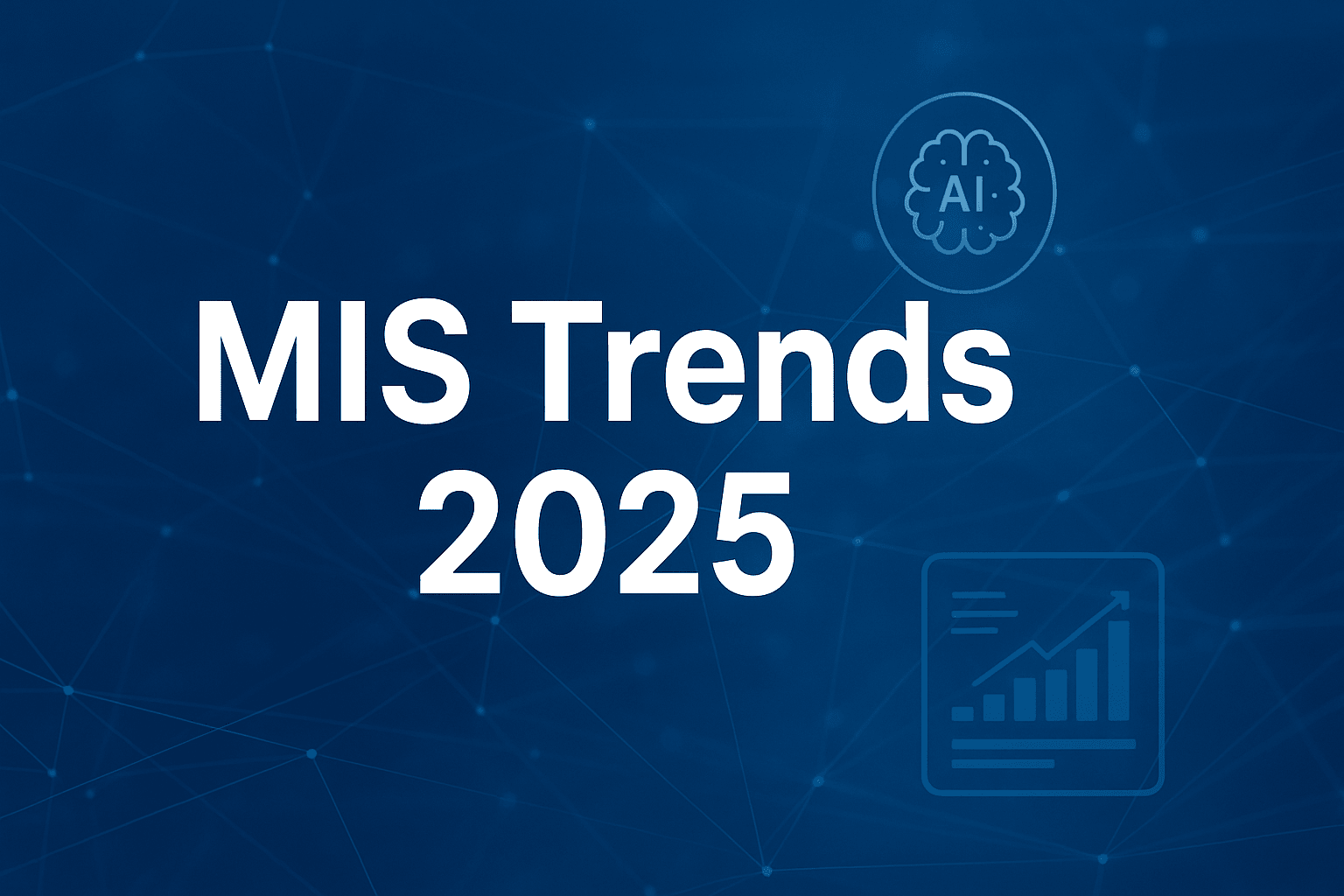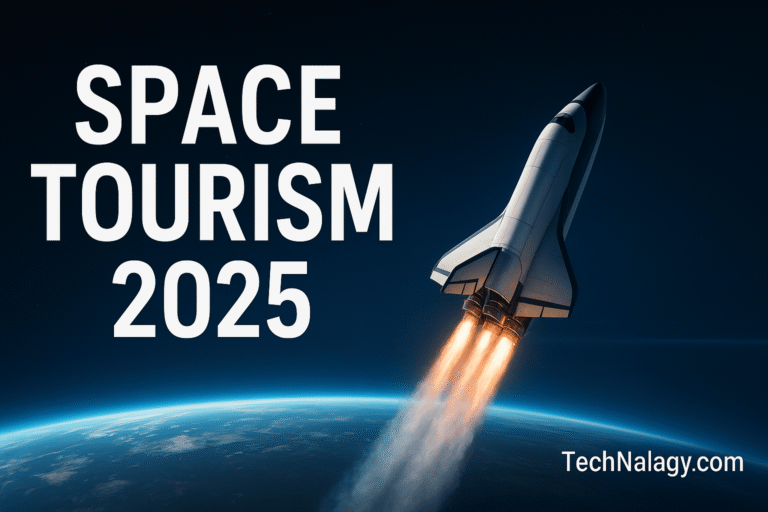Top 10 Breakthrough Management Information Systems Trends Powering 2025
Introduction
In 2025, management information systems (MIS) are no longer static tools—they have evolved into dynamic ecosystems that drive strategy, operational efficiency, and innovation. Powered by AI, cloud computing, and advanced analytics, MIS now plays an active role in shaping how organizations operate and make decisions.
Whether it’s the integration of agentic AI, the adoption of augmented analytics, or the fight against data sprawl, these trends are transforming management information systems into the nerve center of business intelligence. Many of these innovations mirror broader digital transformations seen in industries like education, where initiatives such as Classroom 3.0 (Technalagy’s deep dive) showcase how structured information systems can completely reshape outcomes.
Table of Contents
1. Agentic AI Taking Decision-Making to the Next Level
Agentic AI goes beyond traditional chatbots and automation—it enables MIS to plan, act, and optimize with minimal human input. According to Gartner’s 2025 technology outlook, agentic AI can act as a strategic assistant, not just a reactive tool. Imagine an MIS that notices a supply chain disruption and automatically re-routes shipments to avoid delays.
2. Democratized Analytics and Data Culture
By embedding self-service analytics into management information systems, businesses are empowering employees across all departments to access insights without technical bottlenecks. McKinsey’s research highlights how companies adopting this approach see faster, better-informed decisions.
Platforms like Technalagy illustrate how open, well-structured knowledge bases encourage this kind of data-first culture—helping everyone from HR to marketing use the same source of truth.
3. Unified and Trustworthy Data Foundations
management information systems in 2025 must be a single, trustworthy source of data. The fragmentation caused by shadow IT creates inconsistencies that hurt analytics accuracy. Unified data foundations ensure that whether you’re pulling numbers for sales projections or compliance reporting, the results align.
4. Smart Governance and AI Ethics
As AI becomes integral to management information systems, ethical safeguards are essential. Bias in algorithms can lead to flawed or even harmful decisions. Implementing AI governance platforms that monitor, audit, and explain decision processes builds user trust and meets regulatory demands.
5. Data-Centric Architectures
Data-centric MIS architectures prioritize information over the applications themselves. This separation allows companies to easily integrate new tools without overhauling their entire system, ensuring flexibility as business needs evolve.
6. Security Convergence
Integrating physical security with digital safeguards gives management information systems a complete picture of organizational risk. When both sides of security are aligned, businesses can respond faster and more effectively to threats—whether it’s a cyberattack or unauthorized physical access.
7. Augmented Analytics
By using AI to automatically interpret data and provide narrative summaries, augmented analytics makes management information systems insights accessible to everyone. Instead of staring at complex charts, managers receive plain-language reports explaining trends and recommending actions.
8. Federated Search and Information Access
MIS with federated search capabilities let users query multiple data sources at once, breaking down silos. For example, an HR leader could pull employee performance data from the MIS while simultaneously checking project completion stats from another platform—all in one search.
9. Combating Data Sprawl
Generative AI tools create massive amounts of data, which can spiral out of control. Modern MIS incorporates automated governance to classify, store, and secure this data, ensuring compliance while keeping systems efficient.
10. Cross-Industry Collaboration
The most innovative management information systems platforms in 2025 will be those adaptable enough to work across industries. Retail, healthcare, logistics, and even education can share best practices and architectures, leading to more resilient and versatile systems.
Conclusion
From autonomous AI decision-making to data governance and cross-industry adaptability, the trends shaping management information systems in 2025 are set to redefine how organizations operate.
MIS is no longer a static record-keeping tool—it’s a strategic asset that fuels competitive advantage. Whether your goal is to optimize supply chains, democratize data, or integrate security, these trends offer a roadmap to the future.
For more real-world examples of how structured information systems transform industries, explore resources like Technalagy and forward-thinking initiatives such as Classroom 3.0, where the principles driving modern management information systems are already shaping tomorrow’s leaders.
FAQs: Management Information Systems Trends in 2025
1. What is a Management Information System (MIS)?
A Management Information System (MIS) is a digital framework that collects, processes, and analyzes data to support decision-making, planning, and control within organizations. In 2025, MIS integrates AI, analytics, and automation to deliver real-time insights and improve operational efficiency.
2. How is AI changing management information systems in 2025?
AI is revolutionizing MIS by introducing agentic and autonomous decision-making capabilities. Instead of simply providing reports, modern MIS platforms can predict outcomes, automate workflows, and even make strategic recommendations using machine learning and natural language processing.
3. What does “democratized analytics” mean in MIS?
Democratized analytics means making data insights accessible to everyone—not just IT or data experts. Through self-service dashboards and intuitive visualization tools, employees across departments can analyze and act on real-time data without technical training.
4. Why is data governance important for modern MIS?
Strong data governance ensures that organizational data remains accurate, consistent, and compliant with regulations. As data volumes grow, governance frameworks help prevent bias, ensure transparency, and build trust in AI-driven decisions within MIS.
5. What are the biggest security challenges facing MIS in 2025?
In 2025, MIS faces security convergence challenges—combining physical and digital protections into one ecosystem. Cyberattacks, data breaches, and insider threats are top concerns, making integrated AI-driven security systems essential for real-time defense.
6. How does augmented analytics improve MIS performance?
Augmented analytics uses AI to automatically interpret complex data and deliver plain-language insights. This helps decision-makers quickly understand trends, uncover anomalies, and make informed business choices without needing data science expertise.
7. What is the role of federated search in MIS?
Federated search allows users to access and analyze information from multiple systems simultaneously. It eliminates data silos and enables unified visibility, making it easier for teams to find, compare, and act on information across departments.
8. How are organizations combating data sprawl in 2025?
Organizations are using automated data governance and AI-driven classification systems to manage the explosion of unstructured and duplicate data. These solutions keep MIS environments clean, compliant, and high-performing.
9. Can MIS be customized for different industries?
Yes. Modern MIS platforms are cross-industry adaptable, allowing businesses in healthcare, retail, logistics, and education to tailor their systems to specific workflows, compliance needs, and performance metrics.
10. What is the future outlook for MIS beyond 2025?
Beyond 2025, MIS will evolve into autonomous intelligence systems, capable of self-learning, self-healing, and predictive decision-making. They will serve as the strategic backbone for digital enterprises—driving innovation, sustainability, and agility across industries.

Kamran Khatri is the founder of technalagy.com, where he shares insights on AI, future tech, gadgets, smart homes, and the latest tech news. Passionate about making innovation simple and accessible, he writes guides, reviews, and opinions that help readers stay ahead in the digital world.







